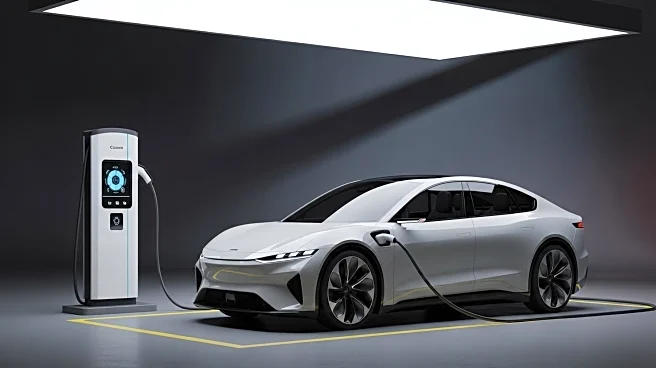What's Happening?
Honda is set to expand its hybrid vehicle lineup and launch its 0 Series electric vehicles (EVs) as part of its strategy to maintain steady demand in a fluctuating automotive market. The Japanese automaker, along with Nissan and Mitsubishi, is focusing on hybrid power to fill market gaps through the end of the decade. This move comes as demand for EVs shows signs of slowing, prompting manufacturers to diversify their offerings. Honda's approach aims to balance the need for sustainable technology with consumer preferences, ensuring a broad range of products to cater to different market segments.
Why It's Important?
The expansion of Honda's hybrid lineup and the introduction of the 0 Series EVs are significant as they reflect the company's adaptive strategy in response to changing market dynamics. As EV demand fluctuates, hybrid vehicles offer a transitional technology that can appeal to consumers who are not yet ready to fully commit to electric vehicles. This strategy could help Honda maintain its competitive edge and market share in the automotive industry. Additionally, the focus on hybrids may provide a more immediate solution to reducing emissions compared to the slower adoption of EVs, impacting environmental policy and consumer behavior.
What's Next?
Honda's strategic shift towards hybrids and EVs is likely to influence other automakers to reassess their product offerings. As the market evolves, companies may need to balance innovation with consumer demand, potentially leading to increased investment in hybrid technology. Stakeholders, including environmental groups and policymakers, may react to these developments by advocating for regulations that support sustainable automotive technologies. The success of Honda's 0 Series EV launch will be closely watched as an indicator of consumer acceptance and market trends.
Beyond the Headlines
The move towards hybrid and EV technology by Honda and other Japanese automakers highlights broader industry trends towards sustainability and innovation. This shift may lead to long-term changes in manufacturing processes, supply chain management, and consumer expectations. Ethical considerations regarding environmental impact and resource utilization could become more prominent, influencing corporate strategies and public policy.









